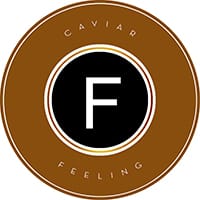If you can’t remember the last time you didn’t feel mentally overwhelmed, emotionally drained and/or physically fatigued, you could be feeling the effects of burnout.
You’ll also like this:
How to Get Rid Of Dark Circles: Everything you Need to Know Debunked
The 17 Best Fragrance-Free Cleansers & Face Washes of 2021
Stars Special: Your 2021 Horoscopes Are Here!
What is burnout?
Burnout is the exhaustion caused by prolonged, high levels of stress. Not only can it affect your eating habits but it also depletes certain nutrients, making you prone to lower immunity, hormonal imbalances and poor gut health. Recovering from burnout is not going to happen overnight and is best supported by both sustainable lifestyle and nutrition changes.
Essential daily habits to What is burnout?
Enjoying good quality sleep is, by far, the most underrated health-supportive habit. Not only is sleep a time for restoration and repair, a lack of it can leave you feeling irritable, tired and more susceptible to the lethargy of burnout. Prioritise a good night’s sleep by avoiding caffeine after lunch, putting your phone away after dinner and going to bed at a time that allows you 7-9 hours of sleep.
As well as avoiding your phone before bed, reducing your phone use in general can support your mental health. Feeling the need to constantly check your social media channels and losing time to doom-scrolling can increase overwhelm and make recovery from burnout even harder.
Instead, reach out for the health-supportive benefits of social connection. Call a sibling, schedule a coffee date with a friend or go to a group class.
How is nutrition crucial to recovering from burnout?
One of the main actions of your stress hormone, cortisol, is to trigger a release of blood sugar in preparation for you to fight or flee. Low blood sugar (caused by irregular meals or a low-carb diet) can also trigger a release of cortisol, and these fluctuations can contribute to mood imbalances.
If you’re wondering why you feel so drained when suffering burnout, it’s because chronic stress depletes nutrients essential to a good metabolism and mental health. Your stress response is a survival mechanism and will use up vitamin C, several of the B vitamins, magnesium and zinc as it tries to respond to your needs.
Research also suggests that chronic stress decreases calcium absorption and spikes calcium loss. Deficiencies in all these nutrients have been linked to an increased risk of anxiety, depression and PMS. While supplementing with these nutrients may be advised (consult a nutritionist to assess if you need them!), there are some very supportive eating habits which can help get you back on track.
Which eating habits can help you What is burnout??
Firstly, you want to make sure you’re getting enough of the nutrients depleted by the production of your stress hormones and then ensure that your blood sugar is stable and you’re including enough protein to support the function of your calming neurotransmitters.
- Enjoy a stress-busting breakfast of whole grains, nuts and seeds each morning. This could be porridge topped with almonds or a wholegrain toast with ricotta, tomato and pumpkin seeds.
- Include a vitamin C-rich fruit with your breakfast, smoothie as a snack. Oranges, strawberries or kiwi fruit are all good choices.
- Add a handful of leafy greens to lunch or dinner each day, for B vitamins and magnesium.
- Choose higher-fibre whole grains at most meals for their beneficial effects on blood sugar and cortisol levels. Now is NOT the time to go low-carb!
- Make sure you can easily see proteins on your plate at 2 out of 3 meals. Choose a variety from animal and plant-based sources.
- Include 2 serves of calcium-rich foods each day, either dairy or calcium-fortified foods.
- Avoid propping yourself up with caffeine. Save your latte for the morning and choose green tea after that for its calming properties. Don’t like green tea? Use it as a base for an afternoon smoothie!
About the Author
Kate is a qualified nutritionist, creator of the Diet Jailbreak program, award-winning chef, eating disorder survivor, media nutrition expert, member of the Australian Traditional Medicine Society and a 2018-2021 WELL global Nourishment advisor for the New York-based IWBI.
You can find her at www.katespinanutrition.com or on Instagram.
You’ll also like this:
A Powerful Beginner’s Guide to Keeping a Journal
Luxury Natural Skincare for Every Skin Type
We Try the DMK Enzyme Therapy AKA the ‘Game of Thrones’ Facial and here’s what happened”









Leave a Comment